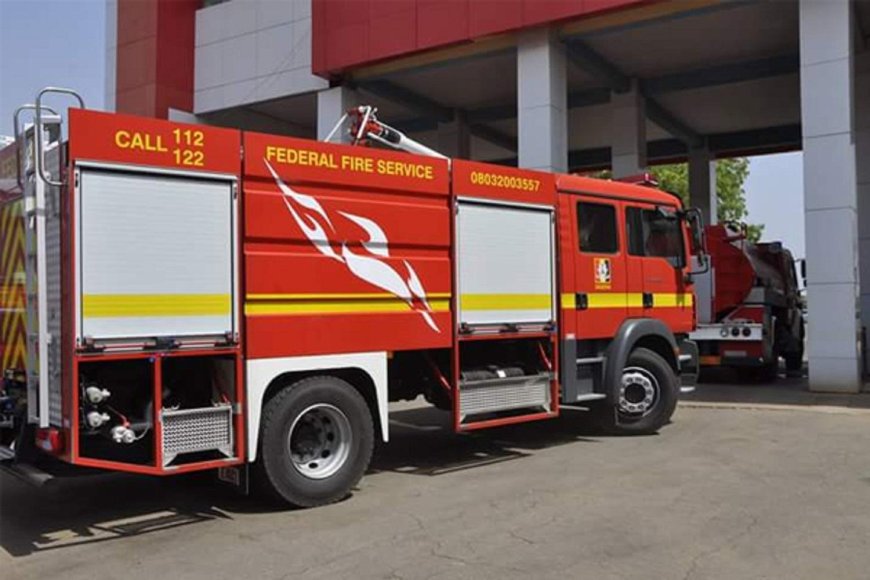Not empty, our fire trucks are full, says Fire Service

The Federal Fire Service has dispelled a public misconception that its fire trucks often arrive at scenes empty.
The Service said that their vehicles are equipped with 2,000 to 5,000 litres of water or specialised extinguishing agents tailored to various fire types.
FFS clarified this in a statement signed on Tuesday by its National Public Relations Officer and Head of Corporate Services, Paul Abraham and made available on its X handle.
Abraham explained that firefighters do not rely on water alone.
Importantly, the Service does not rely on water alone. We deploy water to tackle ordinary combustibles such as wood, paper, and cloth.
“For fires involving flammable liquids like petrol or oil, we use foam agents that smother the flames and prevent re-ignition.
“In situations involving electrical fires or flammable gases, our firefighters apply dry chemical powder, which interrupts the chemical reaction of the fire.
Carbon dioxide (CO₂) is used where delicate electrical or electronic equipment is at risk because it leaves no residue.
The statement added that specialised agents are available for industrial and hazardous-material incidents.
The FFS noted that the nature and severity of a blaze determine the resources required.
“Class A fires (wood, paper) may require fewer resources,” the statement said, “whereas Class B fires (flammable liquids) and complex incidents such as high-rise or industrial fires often demand more resources and backup support.”
It added that the full extent of any incident can only be assessed on arrival at the scene.
Abraham reiterated the Service’s commitment to rapid, effective emergency response through specialised firefighter training, inter-agency collaboration, and continuous equipment improvement.
Last month, the Minister of Interior, Olubunmi Tunji-Ojo, called for the urgent reform of Nigeria’s fire service law, describing the existing legislation as outdated and inadequate for modern rescue operations.
Tunji-Ojo, who lamented that the law governing the service was enacted more than six decades ago, stressed a revised law will improve the agency’s rescue operations.

 admin
admin 


